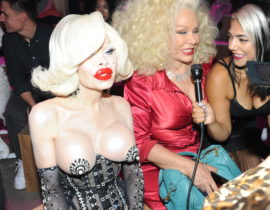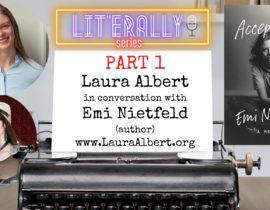“If ever you have the rare opportunity to speak with the devil, then do not forget to confront him in all seriousness. He is your devil after all.” Carl Jung, Liber Novus
As writers, our wish – to have our work be considered by itself—is not possible. No matter how much space we take or control we exert, the imagined author is always dragged along.
As I’ve become less of afraid of how others see me, and more aware of what misperceptions I construct about others from the tiniest piece of information, my voice is freed to write what I need to write. I recently took a workshop offered by the writer Sheila Heti, titled, “What Do People See When They Read You?” It allowed me more clarity, and I realized that my fears about what other people think is a dangerous mind-reading skill I need to retire.
Part of the appeal of Heti’s work is how she consistently trusts her reader to see or find what they will—because that’s what they are going to do anyway.
For me, the craft of her work is how she edits away the extra, refining to what is true in variable moments. Heti herself won’t fit into anyone’s easy stereotype or trope. And as for trying to categorize her books… Are they autofiction? Memoir? Is she writing a philosophical fable? At the end we are left with our own hot take. Heti is not one to contradict us.
I found an email which I wrote to Heti about watching the critics attempt to define her book Motherhood:
The thing about your book is, unless someone frames Motherhood as fiction (which then forces the exploration/acceptance that Fiction can be very revelatory of a writer’s truths while diverging from the “facts” of the writer’s life, or as Oscar Wilde said, “Give a man a mask and he will tell you the truth”) and points out the crafted genius mobile-like art-sculpture structure, it often gets lost. Some critics can’t get that liminal space you are exploring – or exploding.
And for this book, it ain’t the message or the messenger—it’s all of it—needing to step the fuck back and take it all in, the structure and craft, and that is not how we are trained to take in art. We read it like a piece on the internet: Tell me, should I have a baby? Yes or no!
The frustration was mine. Heti understands the futility of trying to war with whatever pronouncements are placed on an artist’s work once it is released into the wild.
Heti’s new novel, Pure Colour, can be imagined as a reader wishes. The story has expansive borders. At one point, the protagonist Mira merges with her recently deceased father inside a leaf. I let go of the need to know if this was a metaphor. Anyone who has grieved the loss of a person dear to them will viscerally be reminded of the way that death separates you from the world at large. I was easily able to project myself into a cocooned conversation with my deceased mother, and in reading, I was able to inhabit my grief and recovery, or lack thereof. The dangling threads hum with a deceptively low voltage in the structure of Heti’s narrative – an array of devastatingly primal and novel conversations about friendship, parental relationships, climate, and what it is to be an artist, critic or even God. Pure Colour can even feel like it could be a therapeutic book. But it is not a self-help book.
Heti’s work reminds me of a child asking a parent where is the end of the universe, asking until they get to that point of unknown. But the parent, instead of cutting off the inquisition with, “Because!” or “It is what it is,” answers subtly, weaving in yet another question within a tale. And it’s up to Heti’s readers to locate an answer—or yet another question.
Like many, I’ve struggled to fight an encroaching hopelessness toward the climate crisis and the growing threat of an authoritarian political landscape. The scale of the devastations of Covid, compounded by its imposed isolation, makes it harder to access the community of activism that can provide even provisional empowerment. The fact that the book Man’s Search for Meaning—written by Holocaust survivor Viktor E. Frankl in 1946, about finding a sense of higher purpose in order to survive in a Nazi concentration camp—is number one on Amazon’s Psychotherapy list, speaks to the need for guidance on facing these existential threats.
And within the quiet, unimposing beauty of Heti’s Pure Colour, there is a harmonic of a felt sense of community yearning for connectivity, and I don’t care how cliché or silly as it sounds—as the Tsunami rushes in, or doesn’t, I absorbed a sense of wonder and love.
As Heti asks in our conversation, “How can I transform this situation into something that makes me feel connected to other people—that there is a purpose in being alive, there’s a purpose in being alive now, there’s beauty in it, there’s valor?”




